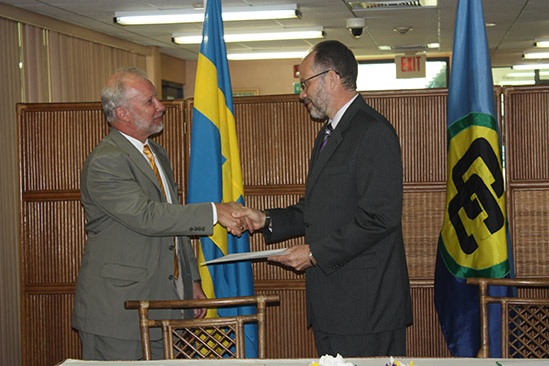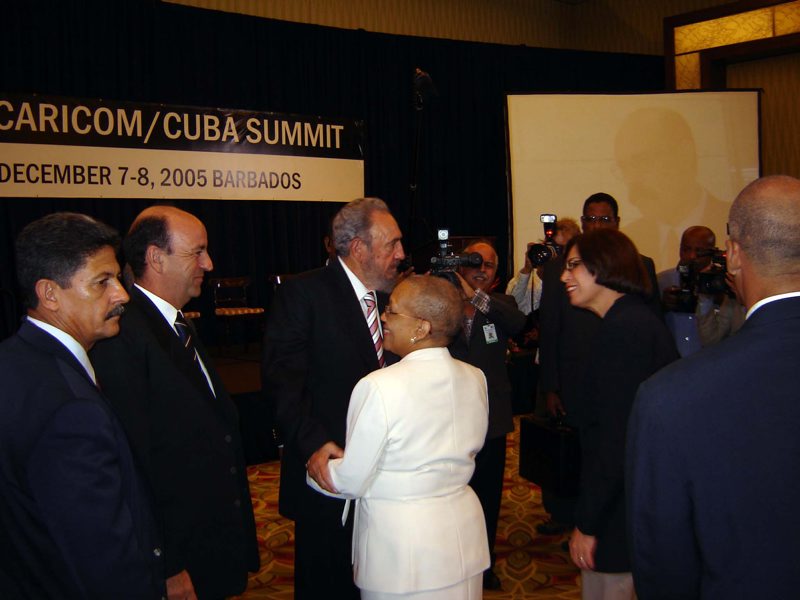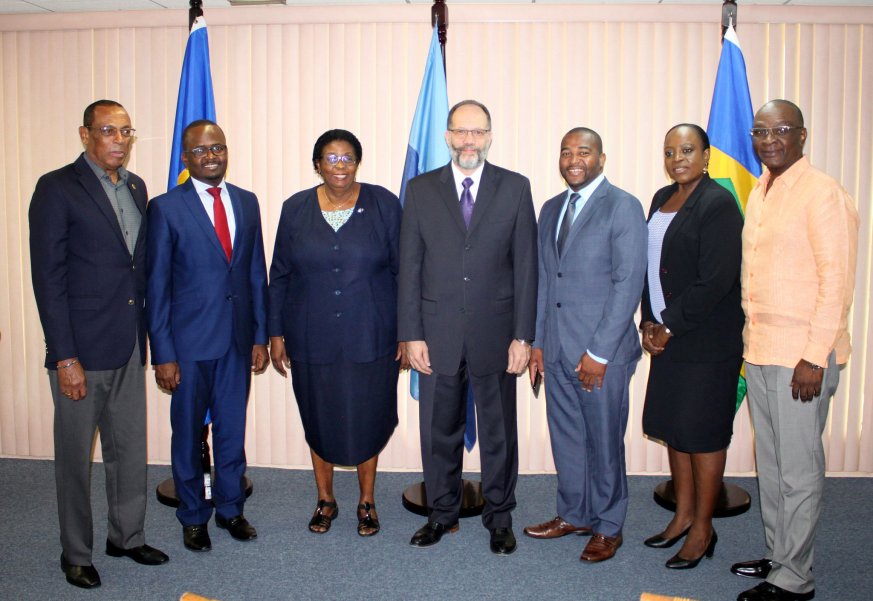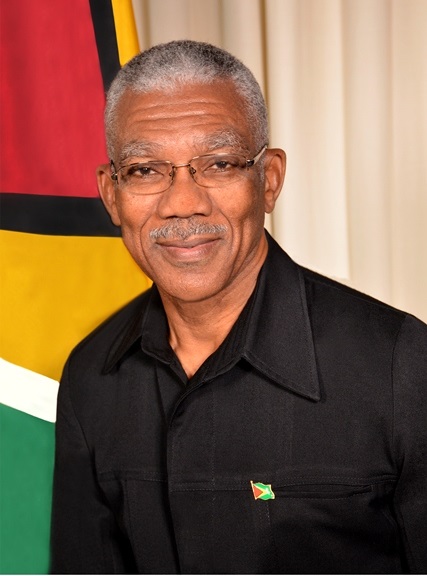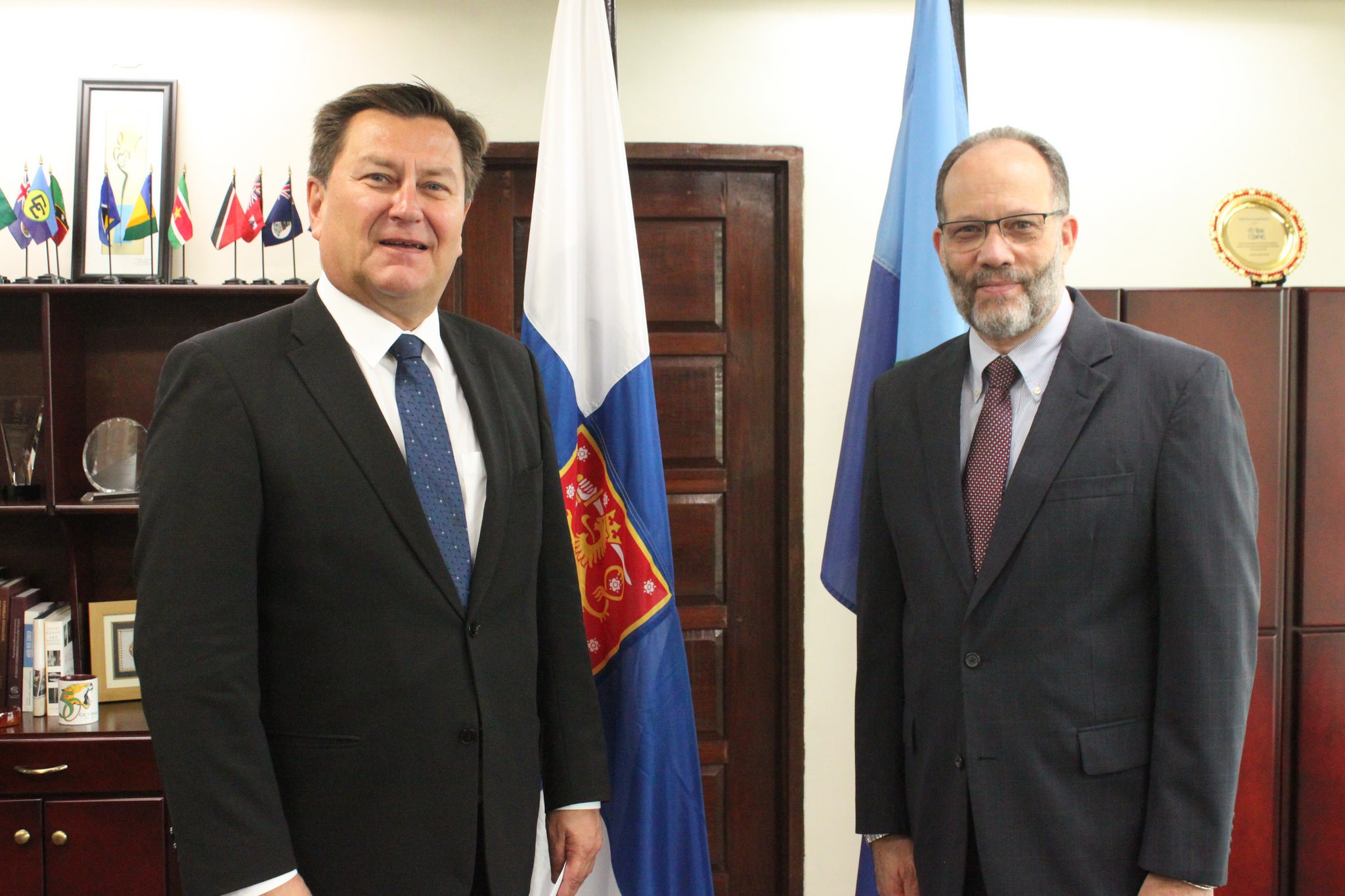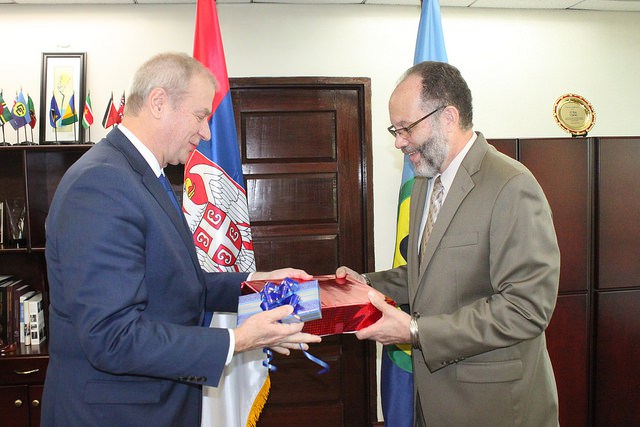(CARICOM Secretariat, Turkeyen, Greater Georgetown, Guyana) While Sweden has forged diplomatic relations with countries within the Caribbean Community (CARICOM) through the establishment of honorary consulates in each CARICOM Member State and by signing of Tax Information Exchange Agreements with eight of them, it had no such ties with the regional bloc.
At the Georgetown, Guyana Headquarters of the CARICOM Secretariat on Friday (11 April), CARICOM Secretary-General, Ambassador Irwin LaRocque, received the letters of credence of the first envoy of Sweden to CARICOM, His Excellency Claes Hammer, and outlined a range of areas in which the two parties could strengthen cooperation.
Those areas include climate change, the United Nations Arms Trade Treaty (UNATT), and the Post 2015 Development Agenda.
“Ambassador, the Community sees your accreditation as a welcome sign of establishing a closer relationship with CARICOM to enable us to work together for our Region’s development based on our areas of mutual interest,” Ambassador LaRocque stated.
He noted that Sweden had already demonstrated its willingness to be involved in areas that were close to the heart of the Caribbean with its decision to make a financial contribution to the monument to honour the victims of slavery and the transatlantic slave trade in the vicinity of the UN Headquarters.
Ambassador LaRocque recalled Sweden’s integral role in the hosting of the first United Nations Conference on Human Environment in1972 in Stockholm which set in motion events that led to the establishment of the Intergovernmental Panel on Climate Change (IPCC).
He said the latest report of the IPCC indicated the risks climate change posed to small islands and low-lying coastal developing states (SIDS) from climate-related processes originated well beyond their borders. Noting that the report also stressed that the ability of SIDS to undertake adaptation and mitigation programs, can be substantially strengthened through appropriate assistance from the international community, he told the Ambassador that he was expectant that the upcoming Meeting of the Conference of the Parties later this year in Peru, would achieve an acceptable agreement on the reduction of greenhouse gas emissions.
Ambassador LaRocque drew to the attention of the Swedish Ambassador that the global financial and economic crisis continued to have a disproportionate impact on most of the economies of CARICOM. When resources were needed most to assist CARICOM countries to alleviate that situation, they were faced with the policy of differentiation or graduation of middle income countries from access to concessionary financing, he stated.
This, the Secretary-General said, was based primarily on the flawed assumption that GDP per capita was the primary measure of development, and failed to take into account other critical factors such as the lack of resilience to external shocks.
“The impact of such global phenomena on our small states is out of proportion to that of the more developed countries and impairs the capacity of small states to pursue their desired development path,” Ambassador LaRocque told the newly accredited envoy.
The Secretary-General lauded Sweden’s support for and signature of UNATT and said the Community was looking forward to collaborating on its implementation as the illegal trade in arms along with the transnational trade in illegal drugs, severely compromised economic and social development of the Region.
The Secretary-General told Mr. Hammer that the Community had taken note of Sweden’s allocation of US $5.24 billion to Overseas Development Assistance (ODA) in 2012 – evidence of its desire to assist those countries which are less fortunate.
“I trust that in identifying countries that will benefit from your development assistance, you will take into account the peculiar vulnerabilities of small developing states.”
“In that regard, within our Community there are areas in which a significant amount of work needs to be done to give those less privileged a chance at a better life and raise their standard of living. There are distinct possibilities for us to work together to improve, for example, the prospects of our youth, to re-skill the large cohort of unemployed and help build the human resource capital so necessary for our sustainable development.”
Ambassador LaRocque said CARICOM willing to forge a partnership with the Nordic country as the international community negotiated the Post 2015 Development Agenda, to ensure that it emanated from an open, transparent and inclusive process and took account of the interests of small developing states.
That process, he stated, must recognise the unique and particular vulnerabilities and challenges of SIDS as a priority and foster their resilience as a key objective towards their sustainable development.
Foreign PolicyPress Releases
CARICOM accredits first Swedish Ambassador
